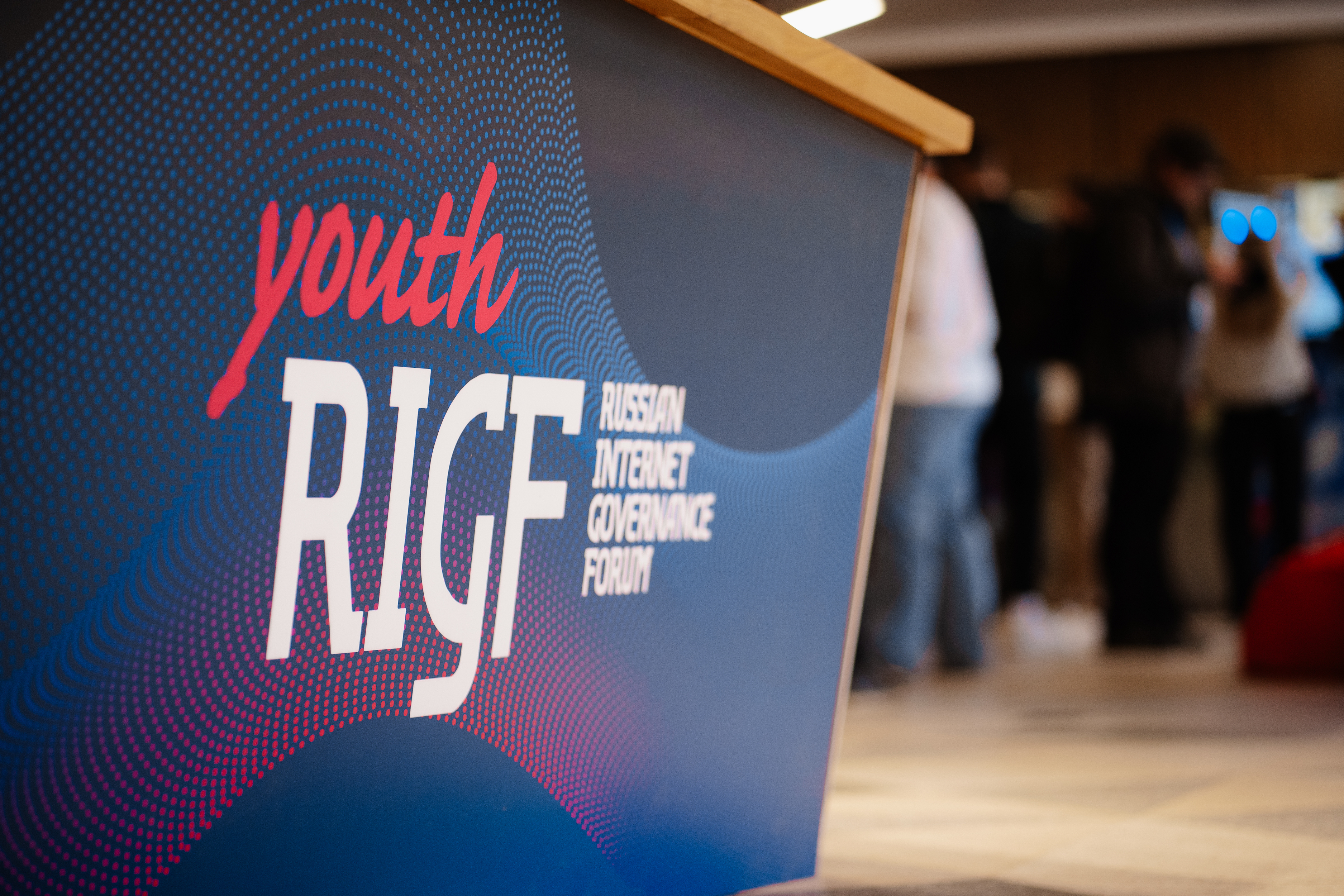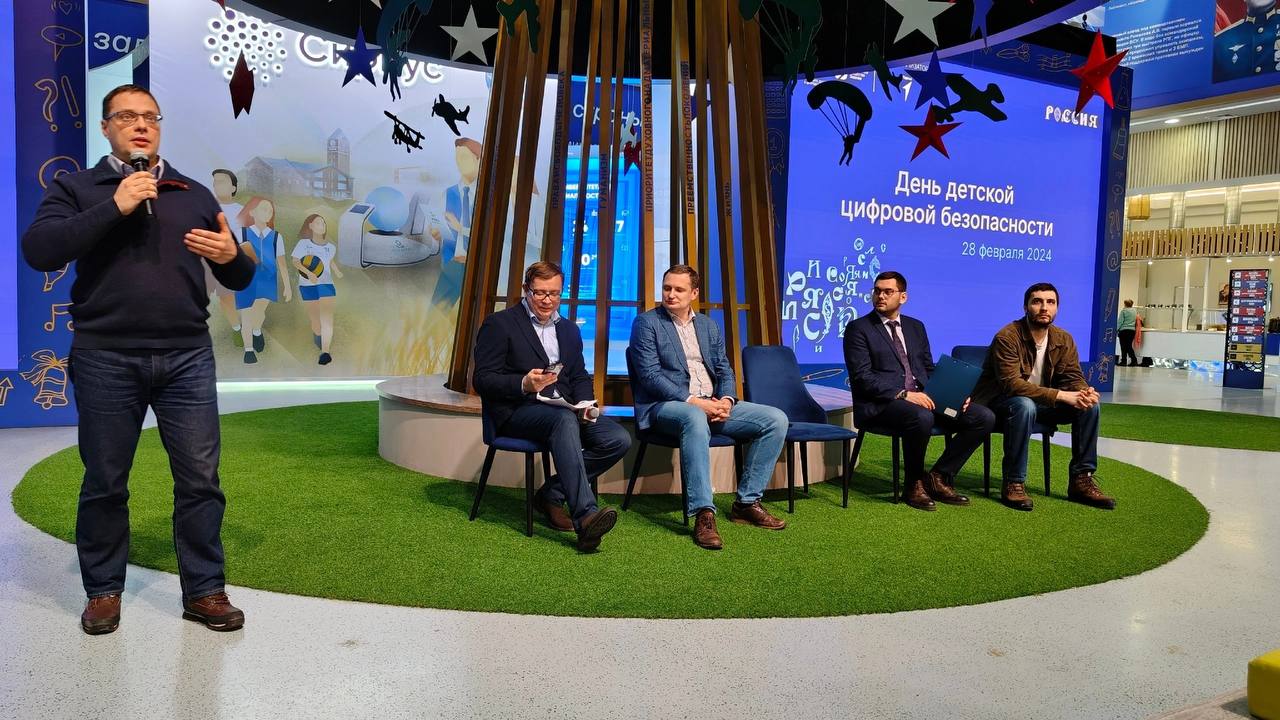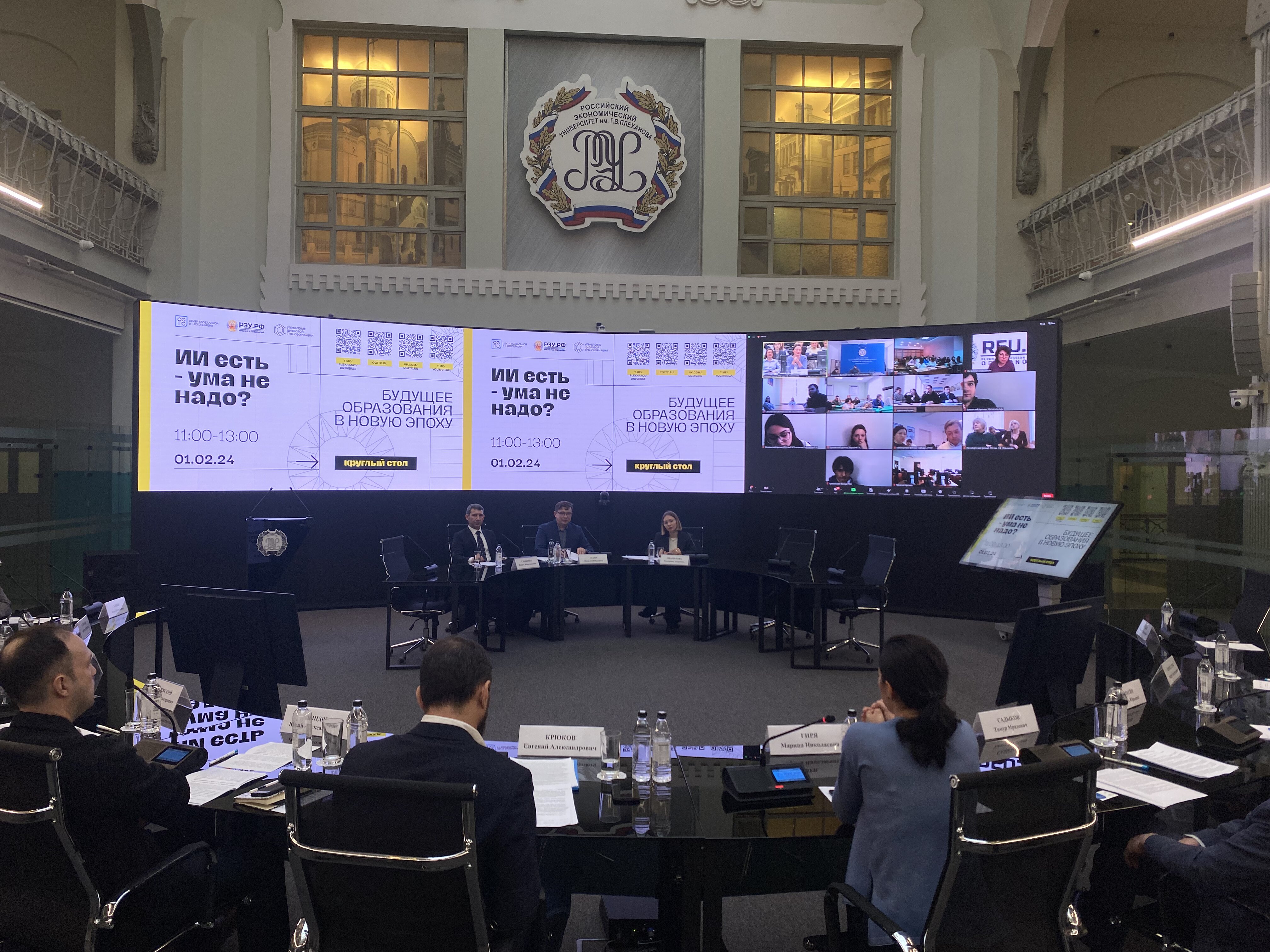In his opening speech, First Deputy Chief of Staff of the Presidential Executive Office Sergei Kiriyenko highlighted the role of Russia in international IT cooperation as well as its role in the advancement of youth movements and volunteering initiatives. “It’s important for us to preserve our identity, our linguistic and cultural diversity in the global digital space. To protect our citizens, first and foremost the youth and children, to create safe and favorable conditions for them to interact on the Internet, develop new competencies and unlock creative potential,” he stated.
At the opening ceremony, “For a Safe Digital Childhood” awards, established by the Alliance for the Protection of Children in the Digital Environment, were given to the winners. Deputy Prime Minister of Russia Dmitry Chernyshenko, Deputy Minister of Digital Development, Communications and Mass Media Bella Cherkesova, Chairperson of the Board of Directors at Global Rus Trade LLC Anna Nesterova, and Chairperson of the Alliance for the Protection of Children in the Digital Environment Elizaveta Belyakova were the ones who presented the awards.
“Today one of the state’s primary tasks is training, preserving and supporting IT talent. President Vladimir Putin has set the objective to ensure national technological sovereignty. Its successful achievement largely depends on the youth getting into the IT industry. It’s the younger generation who’s meant to become the primary force driving Russia’s digital transformation. The government, for its part, is providing comprehensive support to the IT industry. Up-to-date educational programs and courses are being launched; themed events, conferences and forums, just like this one, are being held for IT specialists. It’s important to engage the youth in the dialogue on the future of the Internet, to understand what kind of outlook they have,” Mr. Chernyshenko stressed.
The “‘Create Not Download’: National Content” session was dedicated to the fight against piracy and the prospects for domestic online art following the withdrawal of Western platforms and production studios. Discussion on the pitfalls of generative technologies and the importance of fact-checking was held at the “How Deep Is Your Fake: Online Fraud Techniques” session. The topics of safe online behavior and the dangers of hidden sides of the Internet were raised at the session on “Whirl of the Darknet: Protection from the ‘Dark Forces’ of the Web.” At the session on “IT Volunteers and Information Security: Digital Innovation for the Benefit of Society,” discussion centered around a new kind of voluntary help that can become a great way to start a hi-tech career.
“We’re very glad to see that each year our Forum attracts more and more young people. This means that our youth care about the future of the Internet like never before, and this is precisely why, when selecting topics for the Forum, we try to take into account prevailing trends occurring on the World Wide Web. And of course, we seek opinions from the very users. Our main goal is to build connections between accomplished IT specialists and beginners and help them build great horizontal networks. At the end of the day, the future of the Internet is in the hands of newer generations,” said Vadim Glushchenko, Director of the Center for Global IT-Cooperation—the organizer of the Forum.
On the sidelines of Youth RIGF, the Center for Global IT-Cooperation and the Russian Association for Electronic Communications (RAEC) signed a memorandum of understanding and thus agreed to develop and promote joint approaches and initiatives aimed at educating the youth in the field of information and communications.
“We share the Center’s goals and values, namely engaging the youth in the IT industry, strengthening partnerships and advancing the IT industry as a whole. Right now, our common top priority is Russia’s technological leadership. I’m confident that our colleagues and ourselves have fruitful cooperation as well as many joint initiatives and projects ahead of us,” noted Sergey Grebennikov, Director of RAEC and a member of the Civic Chamber of the Russian Federation.
Besides the business program, Youth RIGF offered fun-zone activities, such as insightful master classes and interactive venues where participants could learn new practical skills. One of the master classes featured the Center presenting its research on “Youth in the IT Industry: Professional Self-Actualization, Key Points of Growth, Relevance to National Development,” prepared for the occasion of the Forum.
Both organizers and participants expressed their desire that the Forum be held annually, in order to meet each other again and give young people from Russia and all over the world the opportunity for dialogue and discussion on new ideas and project implementation.





